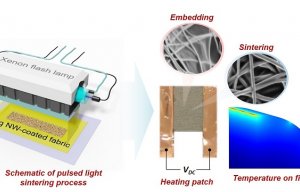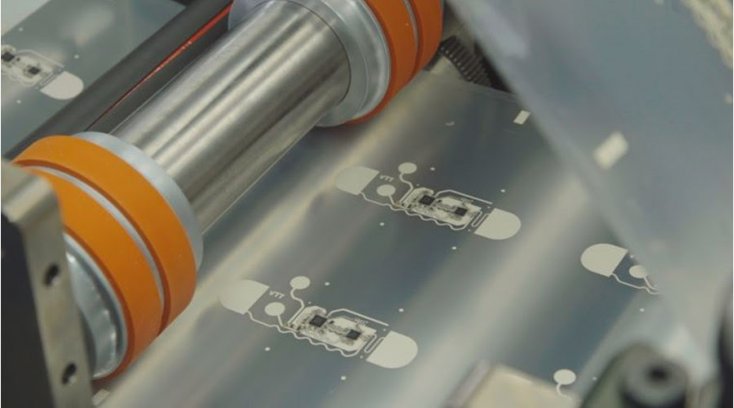
University engineers develop high-tech heating patches
Cellulose e-skin material employed for wearable ECG monitoring.

20th May 2024
Innovation in Textiles
|
Finland
A pilot factory has been developed at the VTT Technical Research Centre of Finland for the roll-to-roll production of smart wearable patches which will be showcased at the forthcoming Future of Electronics Reshaped USA conference and exhibition taking place in Boston from June 13-14.
“Wearable sensor patches offer novel opportunities for many healthcare and wellness applications,” says VTT sensing solutions manager Antti Kemppainen. “For comfort and reliability, they need to be flexible, soft, conformable and even stretchable. Printed and hybrid electronics enable the use of almost any substrate for next-generation wearables and this now includes recycled, biobased or even biodegradable materials.”
VTT’s sustainable electrocardiogram (ECG) is made of a nanocellulose e-skin and printed with carbon conductors and sensing electrodes. The device is also modular, so electronic components can be easily removed and used again.
“The production of printed and hybrid electronics requires several manufacturing processes and tools which might not be available from commercial manufacturing partners,” says Kemppainen. “Our Printocent Pilot Factory bridges the gap between concept and fully upscaled manufacturing by providing extremely versatile processes.”
Available processes include roll-to-roll printed electronics lines with interchangeable printing methods, a high curing capacity and automated layer-to-layer registration. Printing and coating processes on site are capable of handling thin films of less than 100nm up to thick films of tens of micrometres.
Component assembly in a roll-to-roll format can be carried out by a high throughput pick and place line for low-temperature soldering or adhesive bonding, followed by a flip-chip high-precision and bare-die assembly line and extensive converting and post-processing capabilities, including lamination and cutting and an injection moulding machine with a roll feeder for overmoulded electronics.
“VTT’s experienced crew can offer a fast path from proof of concept feasibility to scalable continuous web manufacturing,” says Kemppainen. “Alternatively, we can address specific technical challenges or process bottlenecks.”

Business intelligence for the fibre, textiles and apparel industries: technologies, innovations, markets, investments, trade policy, sourcing, strategy...
Find out more